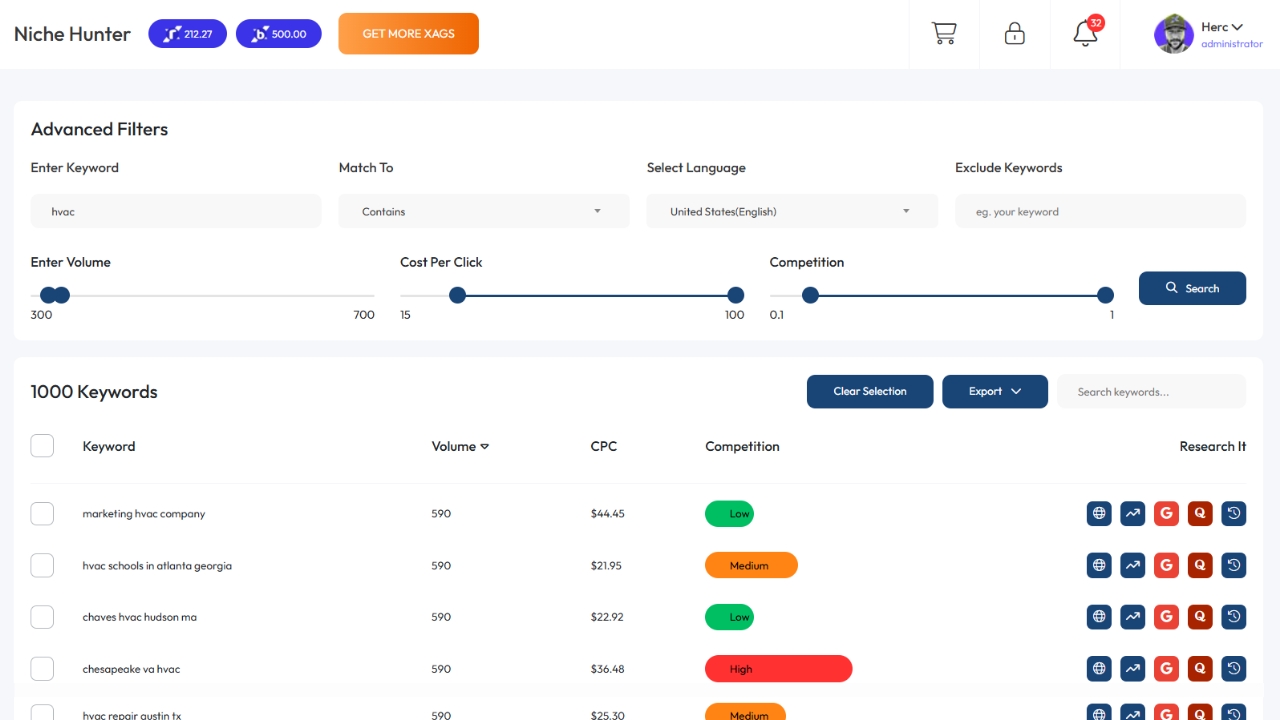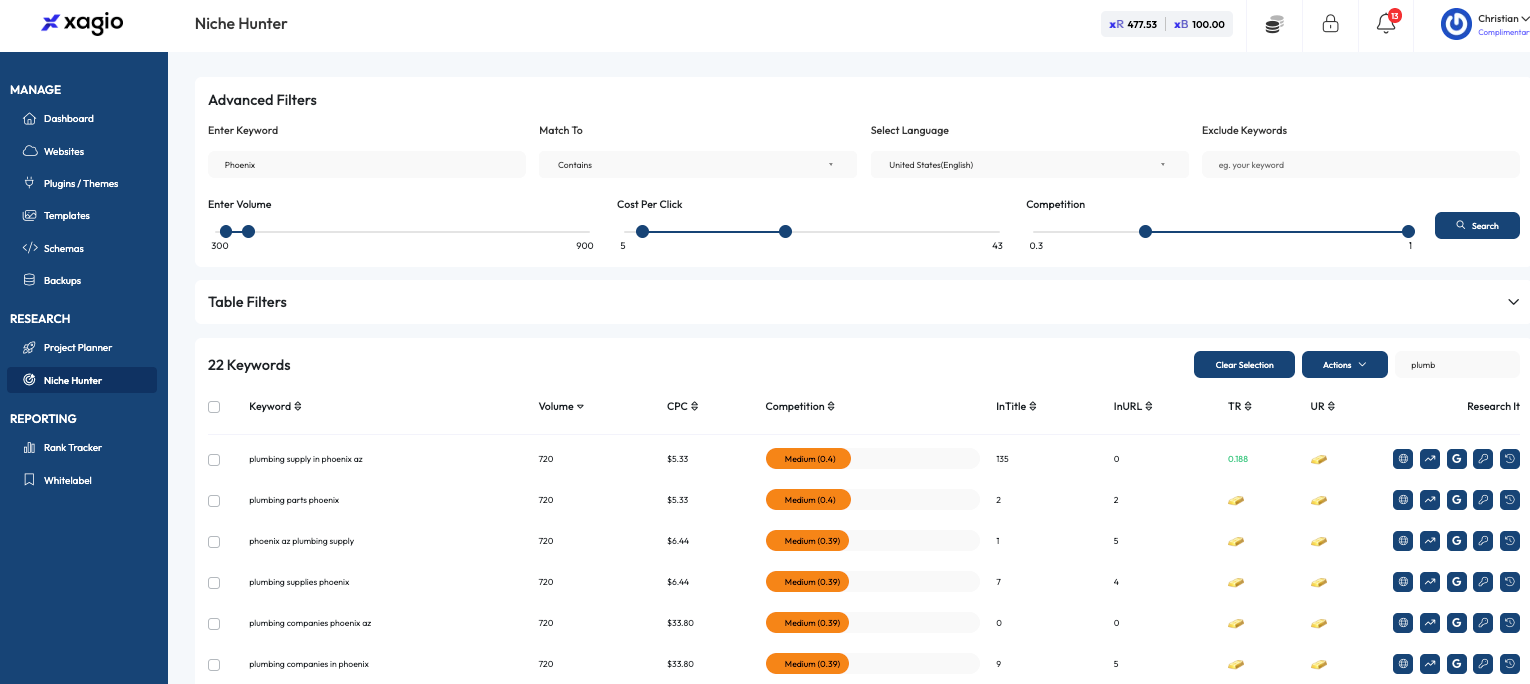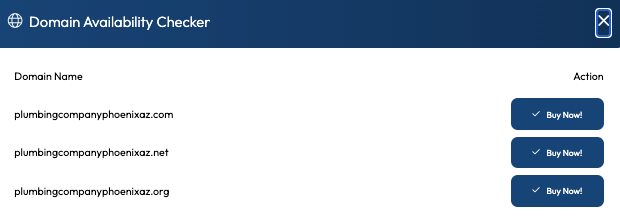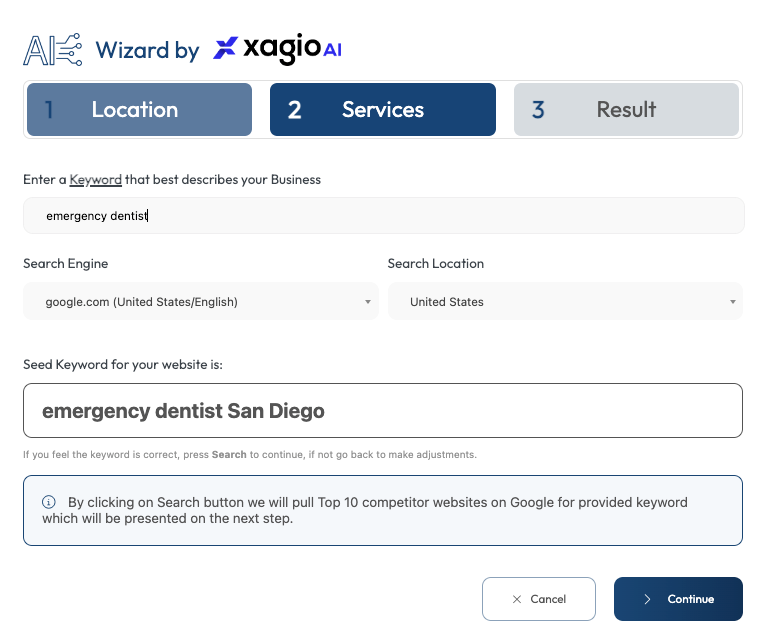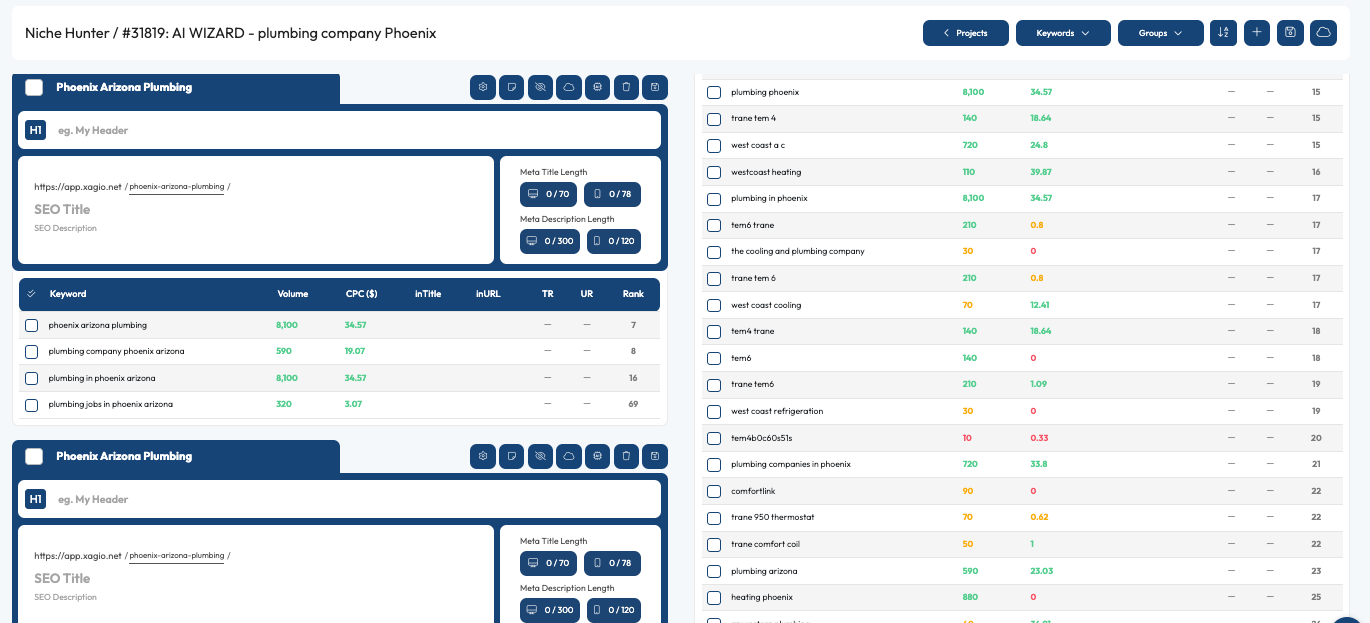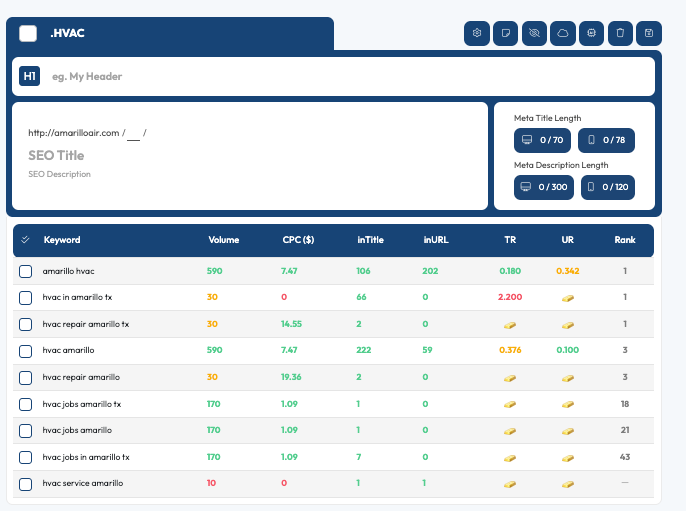The foundation of dominating local search visibility starts with knowing exactly what your audience is searching for and how you can isolate the low-competition, high-reward search terms.
That’s easier said than done, and for many years, it would take me many hours, even days, to find keywords I could easily rank with minimum effort.
However, I did find a formula to identify what I call golden nugget keywords, and I built tools that automate how you do local SEO keyword research.
In this post, you’ll learn my exact keyword strategy for local SEO clients, lead gen, and rank & rent sites.
The best part is that it can take less than 15 minutes to go from zero to fully planned keyword clusters.
Why Local Keyword Research Is Different (And Why It Matters)
Local keyword research is different because you’re looking at specific search intent, locations, and competition. The good news is that you can narrow down keywords for local search results in a way that identifies highly valuable but also low-competition terms.
More on that shortly.
Competitor analysis is also critical for local SEO, as it will provide insights into expanding into locations and services people are searching for.
That’s a very different approach to researching for national SEO or affiliate websites, and your process has to start with understanding search intent.
Mastering Search Intent For Local Rankings
The critical thing with local searches is identifying keywords that are most likely to convert into a lead. That lead could be a phone call or a form submission, and there are certain keywords you need to ignore.
Here’s what I mean.
If you’re doing local keyword research for the plumbing niche in Phoenix, your main starting point will be terms like “plumber in Phoenix” or “plumbing company Phoenix.”
Those terms indicate that someone is looking to hire a business, and it could even be an urgent situation where they need to call someone immediately.
Compare that to a search term like “plumbing supplies Phoenix”, where the intent is very different. Someone might be looking for a simple tool to do a DIY job, so there’s no point trying to target such KWs.
This is an important concept during local SEO keyword research, so keep it in mind for the next sections.
Key Elements That Define Effective Local Keyword Research
I have over 15 years of experience in SEO for local businesses, rank & rent sites, and lead gen projects. With that experience across hundreds of websites, I have narrowed things down to four key elements.
Focusing on these will allow you to identify golden nuggets among the noise of millions of keywords.
Evaluate Search Volume The Right Way
I would be a pretty wealthy man if I got a dollar for every time I was asked to look at someone’s main focus keywords, only to see that they have little or no search volume.
One of the biggest mistakes people make is to imagine what people would be looking for, rather than using tangible data.
The second problem people face is that not all keyword research tools provide accurate or reliable search volume data. And even tools like Google Keyword Planner tend to provide a broad search range.
Match Keywords To Local Search Intent
During your local keyword research, you have to eliminate phrases that don’t lead to a desired outcome (see the above section on search intent).
You have to narrow the research down to only those keywords that would likely make someone pick up the phone or submit a form. Everything else would probably be a waste of time and effort.
Analyze Local Competition
There are countless tools that claim to have worked out how Google rates competition for keywords. My experience with all of them is that they tend to overcomplicate things with very complex formulas.
The result is a competition metric that is inconsistent, leading you to either go after keywords that are too difficult or ignore some that would be easy.
I use a much simpler metric; it’s a ratio of the total search volume compared to the number of results I get with the search operators “intitle” and “inurl.”
When I see low Google search results with these two operators, it tells me that there are few, if any, SEOs trying to get on-page optimization perfect.
Check Exact-Match Domain Availability (It Still Matters!)
The final thing I check, especially if I’m planning to set up a brand-new website, is whether there is an EMD available for .com, .net, or .org.
If I’m targeting a Canadian location, I would add .ca, and do the same for whatever other country I’m looking at.
I know, you’ve probably heard people say that exact-match domains don’t work anymore. But that’s a myth you want to ignore.
You can learn more about why I know this is true in our EMD blog post, but based on analyzing thousands of EMD sites created by Xagio users, I can tell you EMDs still work an absolute treat.
The Hidden Flaws In Most Keyword Research Tools
I have tried and tested pretty much all major keyword research tools, from Google Keyword Planner to Ahrefs, Moz, and SEMRush.
And there are several flaws they all have that simply meant I had to build my own tool.
Here are the main issues I encounter.
1) They Provide Long Lists Of Unclustered Keywords
This is by far the biggest issue. Any time you use local keyword research tools, you end up with a huge list of keywords and volume metrics.
But what do you do next?
You have to sort through them in a spreadsheet manually, create dozens of tabs, and spend days copying and pasting keywords from one tab to another.
It’s time-consuming, frustrating, and used to make me want to pull my eyebrows out.
2) They Overcomplicate Competition
Google obviously has a complex algorithm formula to assess the competitiveness of different keywords.
Every major SEO tool company claims to have created something that is very close to what Google does.
Here’s my problem with this.
When I trusted these metrics, I sometimes went for keywords that were identified as low-competition, but they turned out to be very difficult to rank.
And I ignored keywords that would have been way easier.
My solution was to simplify the competition analysis.
More on this shortly.
3) They Don’t Provide Details On EMDs
Even if you do find great keywords to target, none of these tools make it easy to check whether there is an EMD available.
Yes, you can open a new tab and check GoDaddy or NameCheap manually, but it’s time-consuming when you’re analyzing dozens or hundreds of keywords.
4) They Don’t Simplify Local Keyword Research
And finally, these tools don’t make it easy for you to do research for a location or specific industry.
What I mean is that the best way to do local keyword research is to start with the location and see what kind of keywords are available with search volume.
For example, if you’re targeting Topeka, KS, it would be a lot easier to specify what kind of search volume you want and then get a list of loads of industries and services in Topeka that match your preferences.
However, most keyword research software doesn’t work that way; in most cases, you have to know your starting focus keyword to get anywhere.
After all that doom and gloom, let me show you how Xagio is different.
How To Conduct Local Keyword Research With Xagio
There are two tools built into Xagio that make finding golden nugget keywords extremely easy. All it takes is a few clicks, and our proprietary AI does all the heavy lifting for you.
Step 1: Use Xagio’s Niche Hunter To Find ‘Golden’ Local Keywords
The first tool I want to show you is Niche Hunter. I developed this years ago to help with my lead gen and Rank & Rent projects.
What it allows you to do is specify a location, adjust targets for search volume, Google ads cost per click, and competition.
Within seconds, you get hundreds, even thousands, of potential keywords.
Scan through the list, and when you find an industry or service that looks interesting, filter the list for it. In this example, I’m looking for keywords in Phoenix, and I’m filtering for “plumber.”
Then, select the keywords and let Niche Hunter calculate the competition.
This is based on a ratio of the search volume to the number of results returned for the keyword with the search operators intitle and inurl.
Yes, that’s all I care about, and it’s an amazingly accurate way to find low-competition niches.
You can scan the keywords for search intent, and looking at the list I have here, “plumbing company phoenix az” could be a great potential site.
Now, simply click on the domain availability button to check if an EMD is available to register.
Looks like it is, and within about 2-3 minutes, I’ve found a keyword with great monthly search volume, low competition, and an EMD ready to go.
I now have my main focus keyword and the domain I want to set the website up on.
Now it’s time to do some more thorough keyword research for the niche.
Tip: Check out the full Niche Hunter guide for an in-depth look at using the different settings.
Step 2: Build Keyword Clusters With Project Planner
Armed with your main focus keyword, it’s time to build your keyword strategy and find all the topically relevant keywords.
The best way to do this is by carefully analyzing competitor websites that are already ranking well and in a favorable standing with Google’s algorithm.
I mentioned other local keyword research tools above that do a reasonable job of finding all the keywords competitors are targeting.
But they don’t group them into clusters.
Xagio does!!!
You can follow this guide to Xagio competitor KW research, but the feature is actually quite simple.
In Xagio’s Project Planner, you launch the AI Wizard and enter a few basic details about your target keyword and location.
Then, you select the relevant competitor pages you want to analyze, and Xagio takes over by:
- Finding all the ranking keywords
- Analyzing the topical relevance of the keywords
- Grouping them into logical clusters
You end up with a project view that has all keywords laid out in clusters based on their topical relevance. It’s a great starting point, and Xagio also allows you to refine the clusters further.
It takes just a few minutes, and you get a fully researched list of clusters, ready for the next step.
Tip: Check out our help doc on keyword clustering and seeding to see how easy it is to refine your results.
Step 3: Analyze Keyword Competition
Now that you have all your relevant keywords neatly clustered into topical groups, it’s time to check how much competition there is.
Project Planner uses the same method mentioned above for Niche Hunter, where it calculates the ratio of search volume to number of search results with the operators intitle and inurl.
You can either have Xagio do this calculation for all the keywords in the project, or select certain ones that you’re most interested in.
Those keywords with the lowest competition metrics have a gold bar in the competition columns, and they should be your top contenders for on-page optimization.
Step 4: Optimize Every Page With Xagio AI
Xagio has two methods for optimizing pages:
- Agent X for completely automating website/page creation and optimization
- Project Planner for managing meta optimization at the page level
Agent X is by far the most powerful automation method and will use all identified keyword groups to create a home page and multiple service pages.
If you have manually created pages or are going to design and add content to new pages manually, you can use Project Planner’s AI optimization to create H1, Title, and meta description tags.
Those tags are optimized for the keywords in each group, and the process literally takes seconds.
Start Doing Local SEO Keyword Research The Smart Way
Keyword research doesn’t have to take hours or rely on guesswork and spreadsheets. With Xagio, you can uncover golden nugget keywords, analyze competition, and plan entire keyword clusters in minutes instead of days.
Whether you’re managing client campaigns, running lead gen sites, or building a Rank & Rent portfolio, Xagio gives you every tool you need to dominate local search results faster and with more precision.
Set up a Xagio account today and see how much time you’ll save with AI-powered tools. You’ll also receive tons of information on how to use Xagio to its full potential and get new clients within days.

